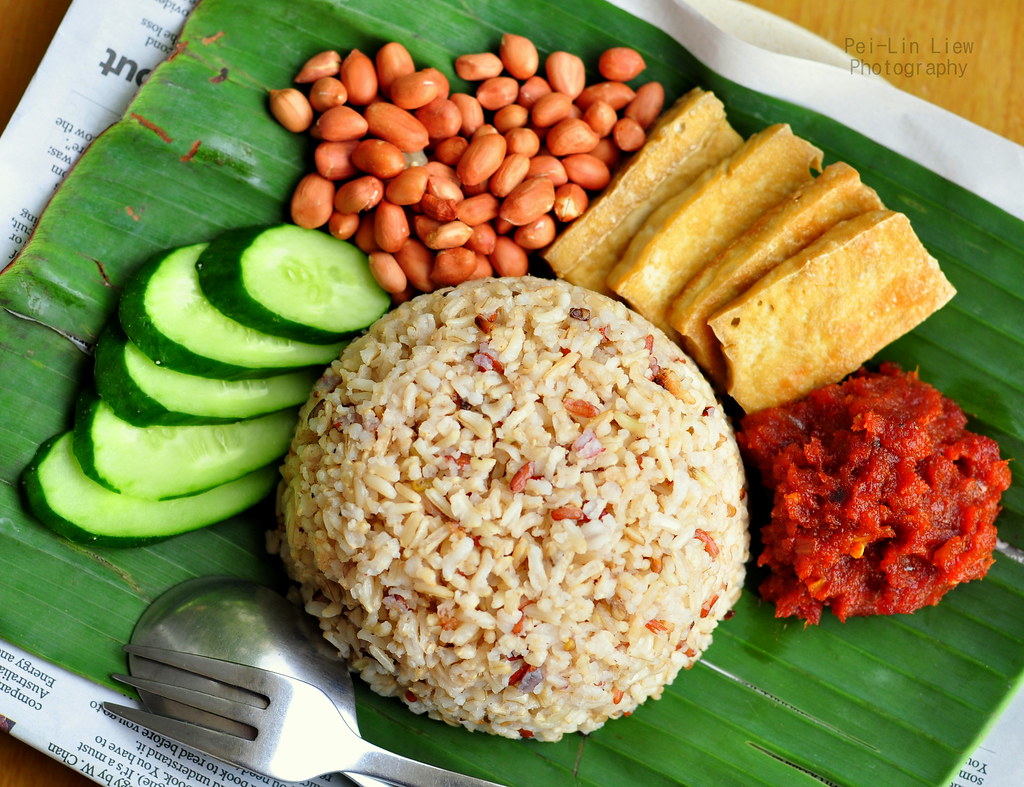We Asked Experts Your Burning Questions About The Malaysian Diet. Here's What They Said
"How can we practise a balanced diet in Malaysia where the average food is full of carbohydrates anyway?"
Released in May this year, the 2019 National Health and Morbidity Survey (NHMS 2019) found that a concerning half of the Malaysian population was either overweight or obese
The NHMS 2019 also found that the prevalence of non-communicable diseases such as diabetes, hypertension, and high cholesterol was increasing among Malaysian adults.
In view of that, we asked our readers what questions they would like to ask professionals regarding the issue.
Here's what they answered:
1. How can we practise a balanced diet in Malaysia where the average food is full of carbohydrates anyway?
The answer may not be obvious but it is simple - Malaysians should be more responsible and conscious about their food choices.
Ivy Gan Shea Yin, a practising dietitian who works in private hospitals around Johor Bahru, said to have a balanced diet, a person has to eat a range of foods from all the main food groups.
"A balanced diet is one that fulfils all of a person's nutritional needs to stay healthy. No single food can provide you with all the nutrients our bodies need," she said.
First, she suggested going for wholegrain options instead of eating our favourite starchy and refined carbohydrates such as white bread, white rice, and potatoes.
According to Healthline, wholegrain varieties include whole wheat, whole corn, oats, brown rice, and quinoa.
In addition to whole grains, Gan recommended vegetables, fruits, meat, and dairy to complete a balanced diet.
"Eat at least three servings of vegetables and two servings of fruits a day," she said, adding that 95% of Malaysian adults do not eat the recommended daily amount.
Besides that, other tips for a healthier diet would be to always remove the chicken skin and, if possible, choose lean meats when eating your favourite dishes.
"Also, always opt for low fat or reduced sugar foods and drinks when possible," she advised.
2. Is it possible to be overweight and yet be perfectly healthy at the same time?
Chua XY, a nutrition and dietetics graduate from the University of British Columbia, said the straightforward answer to this question is no.
"A higher Body Mass Index (BMI) has always been associated with a higher risk for heart attacks, strokes, and high blood pressure," she said.
However, she explained that classifying a person as healthy based purely on their BMI is also inaccurate in the first place.
"Body fat percentage is a better determinant of health," she said, adding that a slim person with a high body fat percentage can also have high risk of chronic disease.
3. My mum says eating multiple small portions a day is better than eating three big meals a day. Is this true?
"Not necessarily. The key isn't the number of times we eat but rather what we choose to eat and the total amount in a day, which should be in moderation," said Gan.
She said, however, different eating schedules are actually recommended for people with specific health issues.
"For example, people with diabetes or hypoglycemia (low blood sugar) should have small and frequent meals throughout the day to give themselves better control of their blood sugar," she explained.
"Meanwhile, the elderly, and those with irritable bowel syndrome or acid reflux, may actually feel better with fuller, modest portions."
4. Does lying down straight after eating contribute to weight gain?
"No, lying down right after eating does not lead to weight gain," said Chua, who added that taking a shower right after eating has no effect on a person's weight either.
Busting the common household myths, the nutritionist explained that weight control is all about the balance of calories: "As long as you take in less calories, or burn more calories than you consume, it will lead to weight loss."
Chua said it is possible that a person's poor sleep habits may lead to weight gain, rather than their pattern of eating just before sleeping.
5. Is it true that if I eat too much salty foods now, I will get high blood pressure in the future?
Yes, the dietitian we interviewed said that taking in too much sodium may increase our blood pressure, as well as the risk of future heart attacks, stroke, and cardiovascular disease.
Instead, Gan recommended no more than 5g of salt, which is equivalent to 2,000mg of sodium, in a day.
She said this is important to know because three in 10 people in Malaysia suffer from hypertension, but only half of that number are aware that they have the disease.
"Also know that most of the sodium in our diets come from processed and packaged foods. So, limit your salty snacks as well as cured and pickled products."
She also advised people to flavour food with herbs and spices instead.
"Don't worry, your taste buds will get accustomed to less salt," she assured.
6. I purposely only eat heart-healthy, cholesterol-free food. Why is my blood cholesterol still so high?
"Many foods marketed as 'zero-cholesterol' may have high levels of saturated or trans fats, both of which also raise blood cholesterol," said Gan.
"Next time, read the 'nutrition facts' food label and keep an eye out for saturated fat and trans fat! Don't forget to factor in serving size too, because those grammes add up quickly," she said.
"Also, generally limit saturated fats that are usually found in fatty cuts of meat, poultry with skin, full-fat dairy, butter, and lard. Trans fats are often found in many baked and fried foods."
Both experts agreed that it is important for people to eat a varied, balanced, and nutritious diet without feeling like they are missing out
In short, everyone should learn to eat more consciously and enjoy planning their meals, even though it may seem like a lot of information to take in at first.
If help is ever needed, they recommended those with further questions to not hesitate to consult a registered dietitian.







